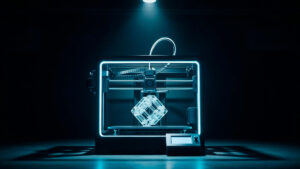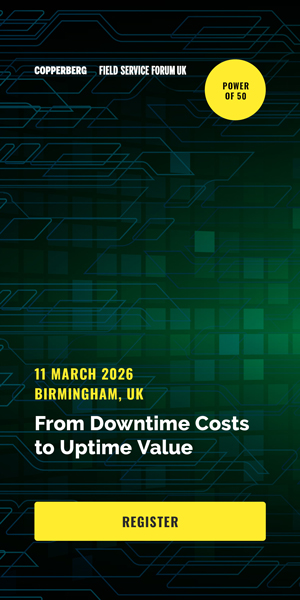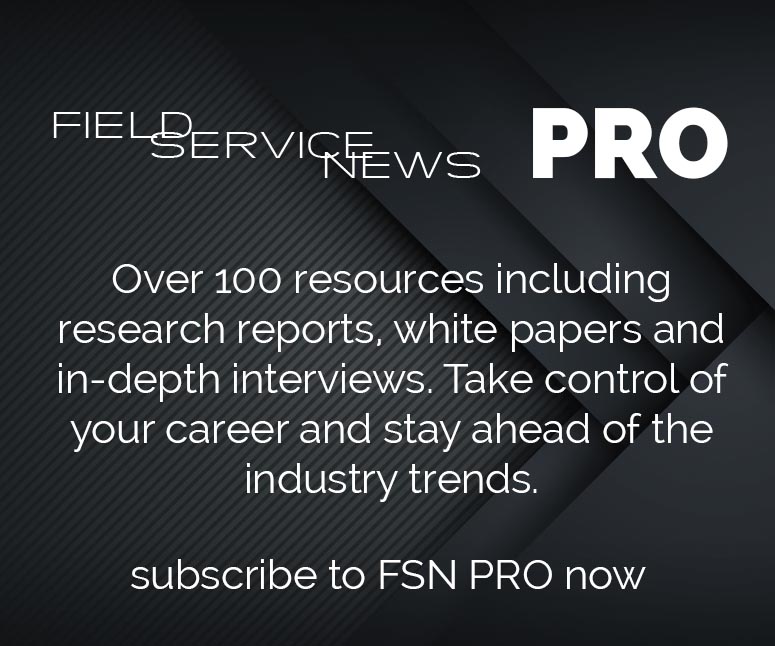In our rapid fire Q&A sessions we invite a guest to answer a number of questions on an important topic in our industry. Today we hear from Paul Paterson, European Technical Director, Beckman Coulter Life Sciences who is sharing his experience with remote service development and Virtual Reality tools…
Good morning Paul, to begin, please describe your current responsibilities at Beckman Coulter Life Sciences.
I’m responsible for the wellbeing & success of our team of Service associates within the Life Science Field Service department – this extends to other areas outside traditional field service such as EU Service Marketing, Business analytics, Sales inside Service, EU LS Service projects and EU LS Service Operations.
Can you briefly describe the Beckman Coulter Life Sciences division?
We’re a successful, fast paced division collaborating with other LS Service departments to provide our customers the most dependable, reliable and efficient service possible in the industries that we serve. We strive to improve our services to internal and external customers by carefully applying best practices to support continuous improvement activities.
How important is service to the business and what are your key service offerings?
Like a lot of businesses, service is seen as a differentiator with our customers. Our world class, voice of customer feedback, Net Easy Score is testament that we continue to provide our customers best in class service. Our key offerings are a range of service coverage contracts from basic level preventive contracts through to fully comprehensive coverage to minimise any risks in downtime or potential unforeseen financial burdens for our customers.
Plus, our innovative solutions are geared to making life easier for the customer – for example, BeckmanConnect is our ISO 27001 certified remote support software solution which allows our highly trained service engineers and application specialists to securely log in remotely to the customer’s instrument for real-time visibility of the system, allowing us to address any service and support needs asap.
How did Covid combined with lockdown and travel restrictions impact the service function?
We made every effort internally to ensure COVID didn’t impact our customers where possible. Whilst unable to travel extensively through Europe we armed our teams with the appropriate PPE and supported our customers locally whilst using AR for any complex issues and installations. Our VOC feedback through the pandemic was simply astonishing as we saw many countries report 100% month on month NES feedback.
Our ability to onboard our new associates was delayed due to the inability to travel to our training centre – the introductions of VR training mitigated some impact and continues to be a source of investment to minimise the future impact on training and enable our teams to remain safe and well whilst being trained remotely.
How did you ensure business continuity in terms of service and support?
We remained in contact with each of our field associates to ensure they stayed safe and well. We communicated to our customers through our highly skilled coordination teams to provide frequent updates on scheduled and proactive field service visits.
We ensured each and every field service associate was supported with protective equipment so we could mitigate risks when leaving their homes. Our management team worked together to ensure teams were safe and our customers supported. In fact, this is still in place as we want to ensure the wellbeing of not only our associates but also their friends and family members too.
What was your remote service offering before Covid?
As mentioned, we utilised BeckmanConnect – our remote diagnostic offering which is available across a number of products in the LS portfolio. It allows remote desktop and file control and sharing so one of our highly trained operators is able to connect directly to the workstation for enhanced visibility to quickly identify the issue and expedite resolution.
Where onsite support is required, the remote connectivity allows our remote support specialists to more efficiently collect data to ensure our field support engineers have the right plan of action, tools and any related parts for quick onsite resolution.
How did Covid accelerate your remote service strategy?
The team continued to drive installations of BeckmanConnect to enable further remote troubleshooting and diagnosis. We accelerated the Augmented Reality tool using the HoloLens Technology from Microsoft – the first successful use of this was made in Europe to remotely support a key account installation. AR allows us to put the power in customers’ hands to imagine and visualise the instrument in their lab, and shows them how to run through using the instrument at their own pace, and in their own space!
We have customer testimonials for this excellent project.
What does your current remote service strategy cover (Beckman Connect & VR)? Does every customer have access to these?
BeckmanConnect remote diagnostics currently covers Flow Cytometry and Automation the continuous evolution of BeckmanConnect will see this rolled out to additional products. Our VR platform started with Particle counting and characterisation and is on an accelerated pathway for more product lines to be available on virtual reality soon – watch this space!
What were your key requirements of a VR solution?
We needed speed of implementation and flexibility. While the technology was already advanced, it was also important to ensure the solution was a platform that was able to be evolved.
Why did you choose the Real World One VR solution? How was it tested?
We chose the RW solution after looking at products from multiple vendors. RW1 was the only solution that offered virtual instructor led training as well as allowing virtual meetings. The software package behind the solution allows for more future development.
How did you amplify the advantages of VR to employees? How did you overcome any reluctance to adopt the technology?
During the pandemic, employees were eager to learn that Beckman Coulter Life Sciences was evolving with the state of the world and investing in its employees with cutting edge technology.
Many different individuals from varying roles and backgrounds have used the new VR. Of course, some people are more comfortable using it than others but everyone can see the benefits of the technology
How has BeckmanConnect and VR enhanced the customer experience? Has it improved first time fix rate, for example?
The primary benefit of VR is its remote operation! It removes the need for Field Service Engineers to travel on site to train meaning that they have more availability. Plus, it can dramatically reduce any potential down time.
What are the short and long-term benefits of VR for BCLS?
Short-term benefits enable us to support customers and FSEs where travel channels are still not fully open or where we look to limit risk for our field associates and our customers. VR enables us to train our field associates when we need to train individuals and not have to wait for training courses/spaces to become available.
VR also enables trained associates to revisit training courses, topics and subjects to refresh their knowledge when they need it and where they need it. Long term, VR has the ability to speed up our commitment to customers by accelerating changes to our install base and training needs.
Are there other ways that remote assistance has been of benefit e.g. training junior employees / apprentices, sharing and transfer of knowledge across the business?
VR allows us to push training to associates when training needs change. VR has the ability to bring our product knowledge to every associate in our business and strengthen the communication to our customers regardless of where you are in our company.
Our coordination and hotline teams can have access to our products even when we are unable to use field visits to bring product knowledge to them. Remote diagnostics supports our efforts to be as environmentally sustainable as possible.
Post-Covid, how will remote assistance fit into your service strategy? Will remote-first be mandatory for example?
We anticipate that AR alongside BeckmanConnect will be used as the first triage for customers. This will improve the most important metric – instrument uptime. It will also accelerate diagnosis and enable further improvement of First Time Fix (FTF) if a field based associate needs to visit a customer.
Is BCLS planning any new service initiatives to meet post-Covid requirements?
Further advancements of AR, VR and BeckmanConnect are in progress alongside evolution of our Call Centres by enhancing our Hotline troubleshooting to further increase telephone fix and increase customer uptime.
How will it affect customer relationships?
Our customers will have the ability to increase their knowledge of the products by collaborating closely with our service support teams both by telephone and face to face. By using AR/VR and BeckmanConnect our customers will see further improvement of our support techniques to bring their hardware and software to be the go-to platform for their diagnostic, research or cleanroom laboratory needs.
What role do you think remote service / assistance will play in the post-Covid world in general?
Remote diagnostics will always play a fundamental role in the service support arena. At Beckman Coulter Life Sciences, we strive to support our customers and products in the most cutting-edge, efficient & sustainable way possible. Remote diagnostics supports our efforts to be as environmentally sustainable as possible whilst ensuring uptime.
Further Reading:
- Find out more about Beckman Coulter Life Services
- Connect with Paul Paterson on LinkedIn
- Read more on Digital Transformation in Field Service
- Access over 24 premium resources on post-covid recovery (PRO)
- Access over 60 premium resources on Digital Transformation (PRO)
- Access over 30 premium resources on Remote Service Delivery (PRO)











